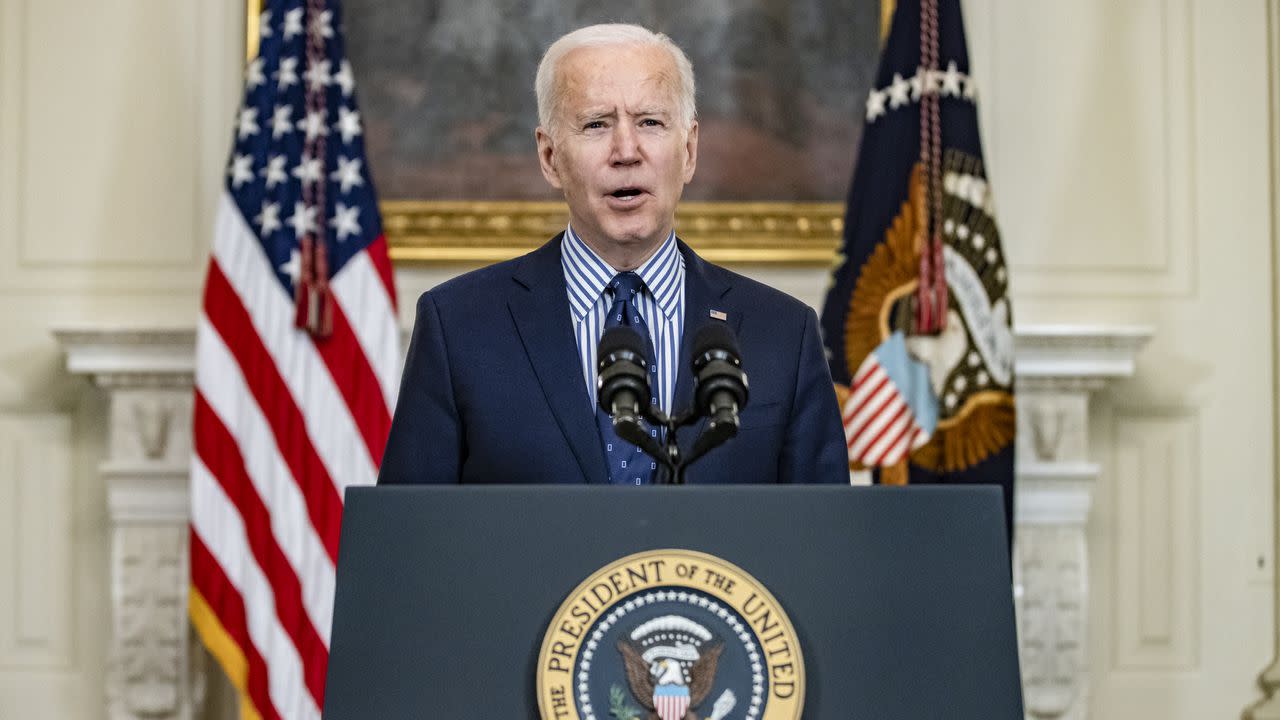
Refinery29
Parents Could Get Up To $5,000 With The Next Stimulus Bill
This story was originally published on February 8, 2021. Right now, the next COVID relief bill is being debated in the Senate. If it passes, it will return to the House for a final vote before arriving on President Biden’s desk. It’s possible that there could be significant amendments to the bill made in the Senate — such as keeping a $15 federal minimum wage hike in the bill after the Senate Parliamentarian found that the original provision broke budget reconciliation rules, altering the amount of federal unemployment benefits that will be given, and further restrictions on the $1,400 stimulus payments. While a lot is still in flux, one thing that seems likely to remain in the final version of the legislation is some much-needed assistance to parents who have dependents, including an extra $1,400 per dependent for qualifying households, and a revision to the Child Tax Credit that would put cash in people’s hands more quickly. Raising children in this country is enormously expensive, but the general attitude of American politicians has been to limit assistance to families by not offering things like government-funded childcare or extended parental leave — two things that are common practice elsewhere around the world. It’s no surprise, then, that the U.S. has one of the highest child poverty rates among OECD countries, a designation that mostly includes the wealthiest, most industrialized nations in the world. But now, there appears to be growing interest in expanding the effectiveness of existing welfare programs for families with children. In early February, Sen. Mitt Romney proposed that each child five years old and younger receive $4,200 over the course of a year, and that children between six to 17 years old receive $3,000 per year. A similar proposal is included in the $1.9 trillion COVID relief bill that will hopefully pass by next week. Eligible parents will receive a tax credit of $3,600 per year for children under 6, and $3,000 for children between 6 and 17. That’s a big boost from the current law, which gave up to $2,000 per child in tax credits. According to the Center of Poverty & Social Policy at Columbia University, this mix of benefits in Biden’s relief plan could cut child poverty by half in the U.S. Similar to the COVID stimulus checks, the child tax credit would be tied to income, with reduced benefits for single-adult households who make over $75,000 and for couples making over $150,000. Some critics note that imposing income limits on the measure could unnecessarily complicate its rollout, compared to a flat payment regardless of income. Unlike the existing Child Tax Credit, which is applied when you file your tax return, this benefit is intended to be sent out monthly — if you have a child under 6, you’d receive $300 every month. Yet treasury officials have admitted that the IRS may not actually have the resources to distribute them on a monthly basis. It’s a good time to remember that the IRS has been heavily defunded over the past decade, which not only makes it inefficient at sending payments such as proposed child benefits and stimulus checks, but also makes it difficult for the agency to properly audit wealthy taxpayers and corporations that should be contributing more to the nation’s tax revenue. As it exists in the COVID relief bill now, the new child benefit would start in July and last for a year, but Democrats have said that they want to turn it into a permanent program. Unlike some benefits, this benefit will not be garnished if you currently owe taxes. The Child Tax Credit is one of the biggest child assistance programs that exist in the U.S. But this new change is seeking to make it a cash assistance program that would put money in people’s hands on a periodic basis instead of merely reducing the amount of taxes you owe. Currently, you can’t actually receive the full $2,000 credit if you owe nothing in taxes — it’s only “refundable” up to $1,400. It’s time for the U.S. to catch up to other countries that have, for a long time now, been giving cash assistance to parents to combat child poverty. The good news is that the Biden administration and Democrats have been focusing on how to quickly help families with children in the next stimulus bill. Recently, Senator Cory Booker introduced a proposal to start a federal “baby bond” program that would put $1,000 in a savings account for every child born in the U.S., and up to $2,000 per year after that until the child turns 18. These proposals mark a departure from much of the country’s prevailing attitude toward welfare assistance, and their general resistance toward offering direct benefits in lieu of subsidies or, say, food stamps. But the positive impact of the direct stimulus payments and the flat $600/week unemployment boost that many Americans received through July 2020 are concrete evidence of what studies have already suggested — that the fastest, cheapest, most effective way of lifting people out of poverty is to just give them cash. No strings attached. Like what you see? How about some more R29 goodness, right here?What To Know About Biden’s COVID-19 Relief PlanIs $50,000 Student Debt Cancellation Coming Soon?